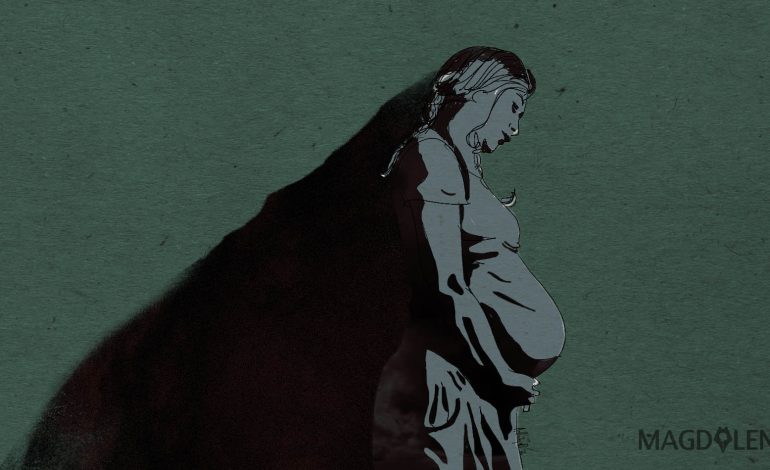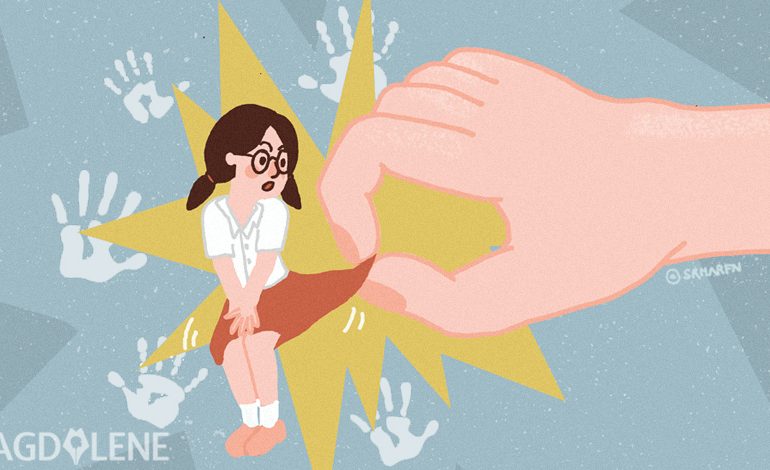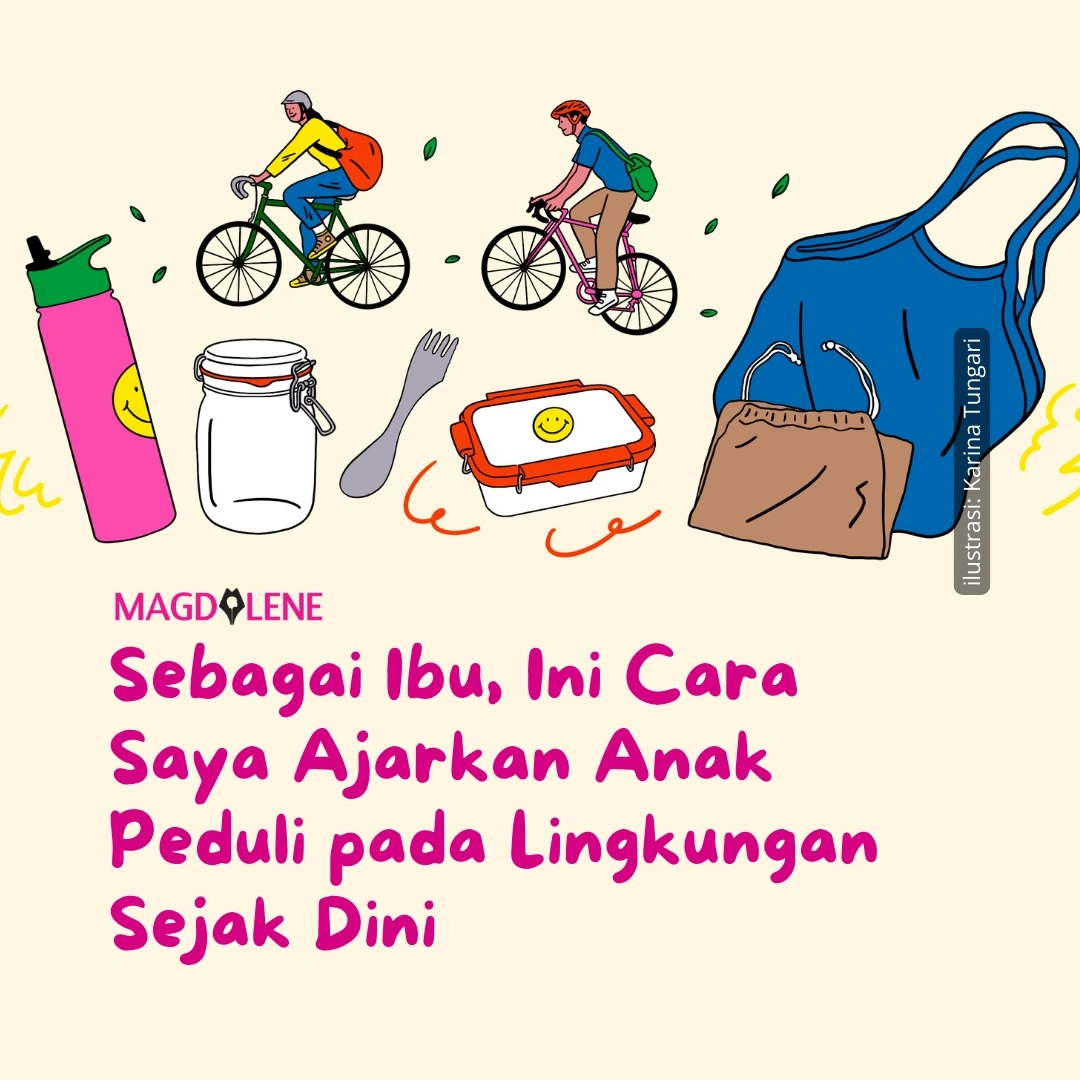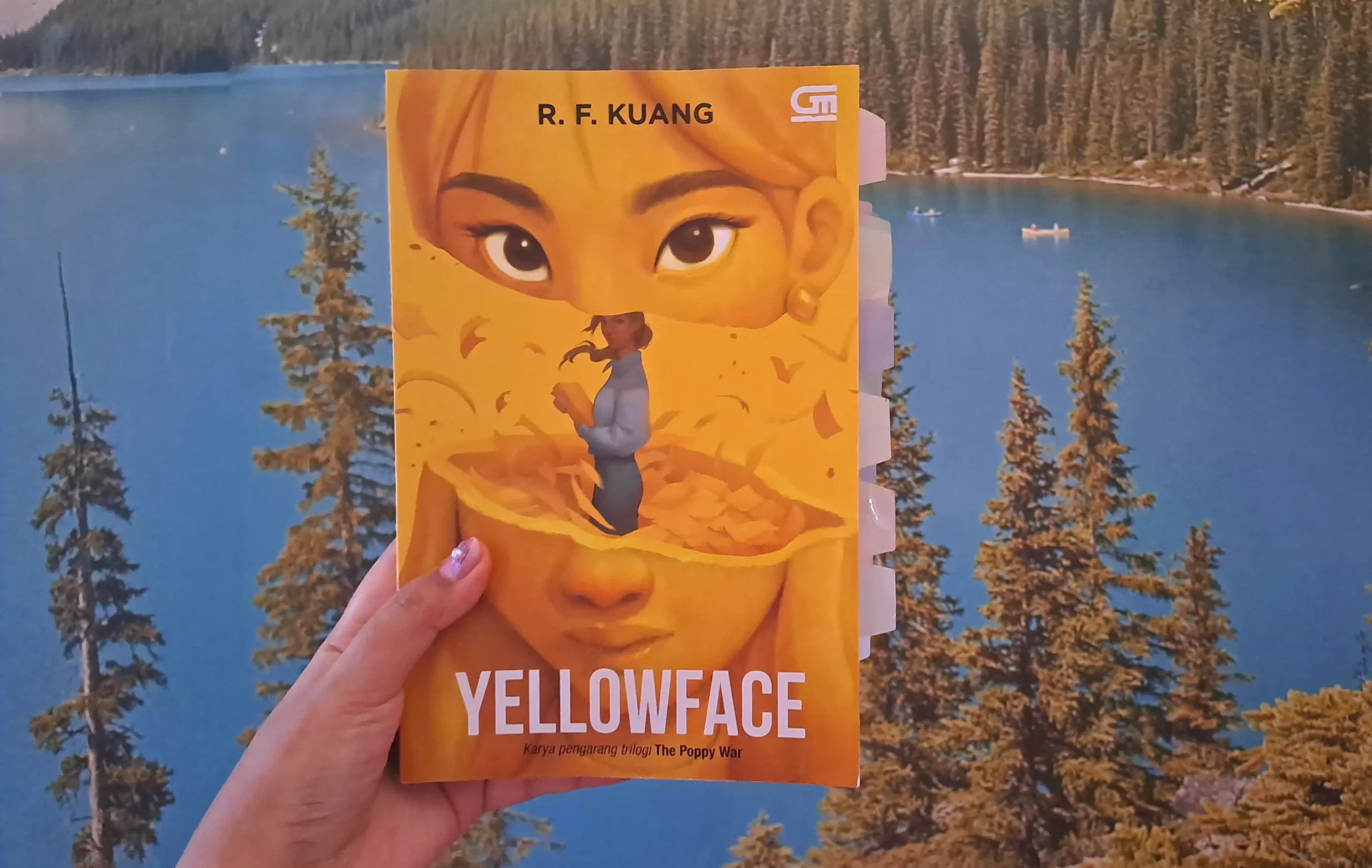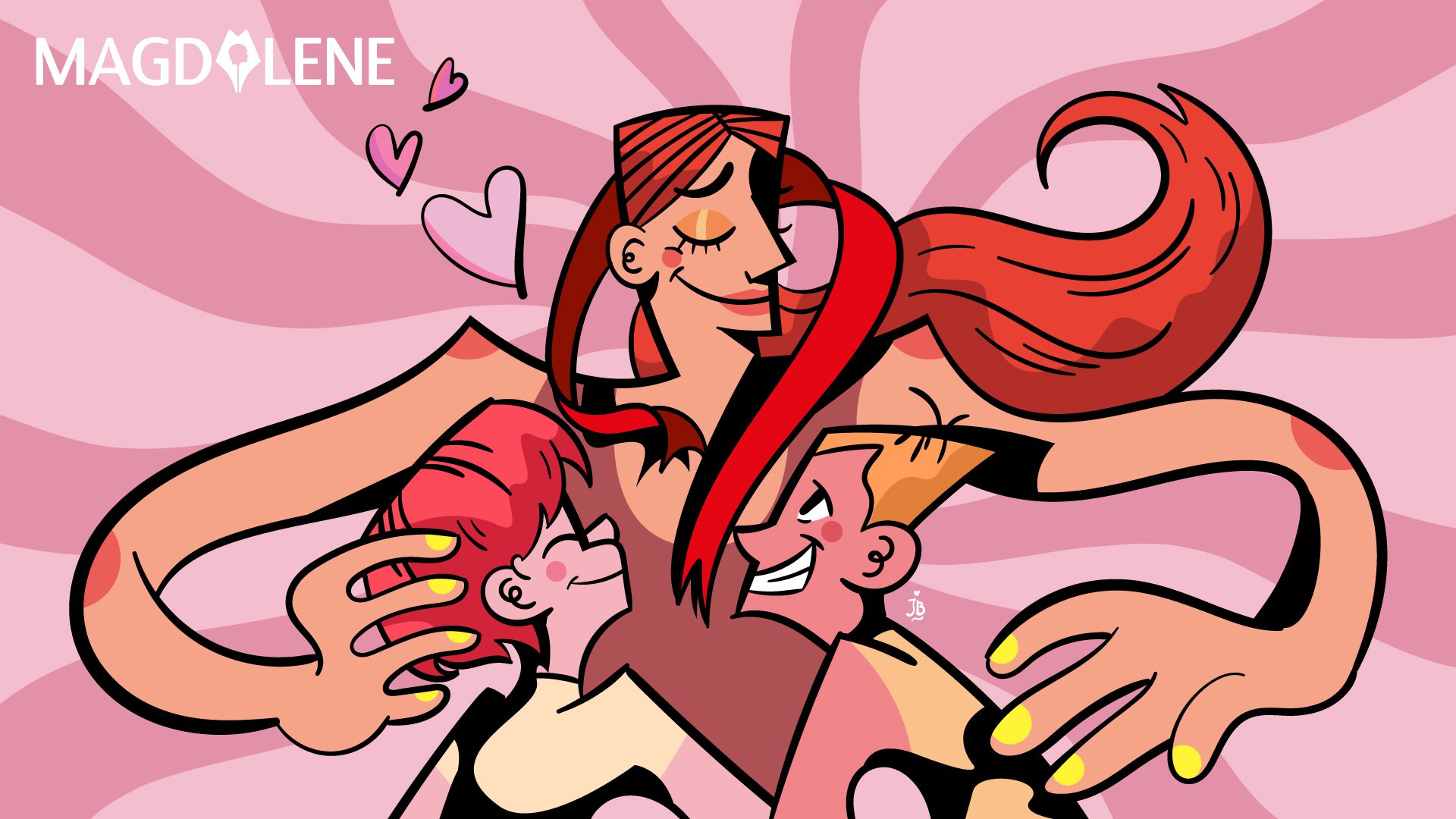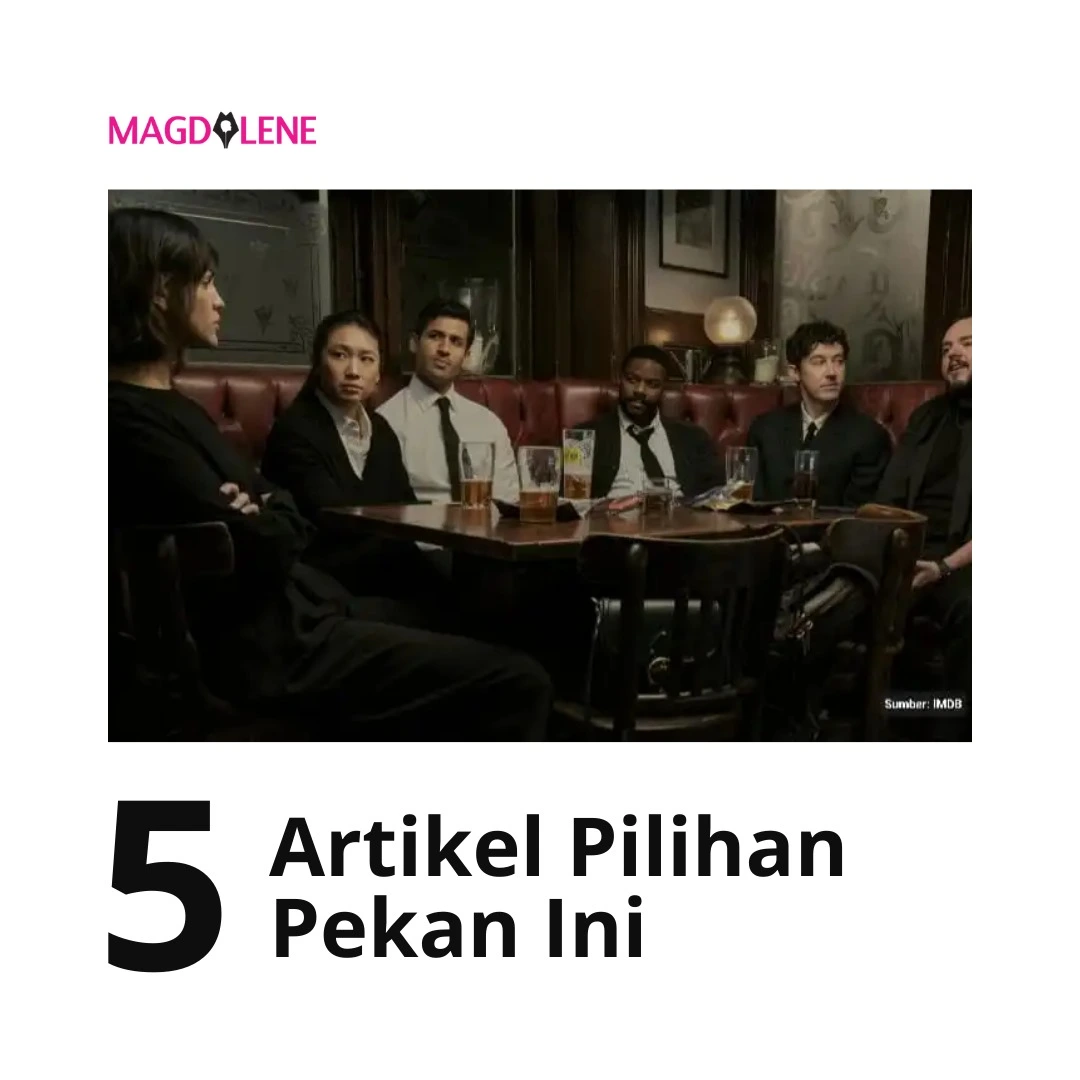Breaking the Taboo Surrounding Older Women: A Conversation with Alex Bruni
London-based academician and model Alex Bruni talked of ageism, beauty and sex in this interview.
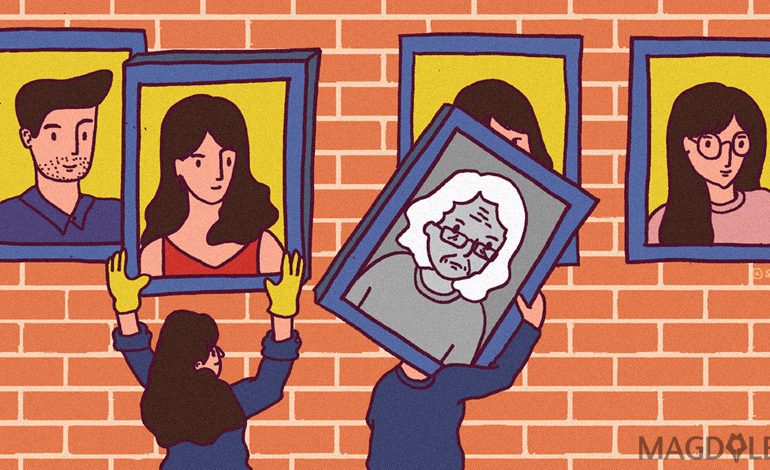
Alex Bruni spent over two decades in the academia, researching and teaching art history. Curiosity breathed her a new life in her late 40s when she tried out modelling, initially for fun. Conscious of how older women and men are not represented enough in the media, Alex inserts and asserts herself as an older female model calling for diversity in fashion. Alex is represented by Grey Model Agency, which shares her ideals to change the way aging is perceived and portrayed. At the recent Indonesia Fashion Week (IFW), she delivered a keynote speech on the globally changing face of beauty and fashion, as part of her upcoming book on Indonesian contemporary fashion. Alex has also written for Magdalene.
Here she talks bluntly about everything from ageism in fashion, beauty and sensuality to how she stays the formidable and passionate woman that she is in her 60’s.
So, I saw you wearing the ‘We Are All Feminists’ shirt and I started stalking your Instagram, obviously. You describe yourself as ‘very long silver hair’. What’s that all about?
Very long silver hair has to do with my fashion activism and also describing myself as a model. I model because for me modelling is a form of activism in the sense that what is at stake is the issue of representation. I am an older woman and I would like to be represented in fashion and advertising. And because I’m a consumer I don’t want to be neglected. The silver hair is because way back, I felt very much pressured to color my hair because, you know, it makes you look very old. But at some point, I thought there was no point in fighting age. And, mindful of people like Ibu Gedong Bagus Oka, the Gandhian multifaith activist who was very inspiring for me, mindful of the Italian model-lecturer Benedetta Barzini, I sort of decided at some point to embrace my age, my grey hair, and sort of just be me, basically.
That reminds me of an Indonesian film ‘About a Woman’ that talks about an older woman’s sexual desires. It’s refreshing, considering older women mostly appear as good grandmothers in advertisement. But some of my friends were kind of disturbed by the film. I mean, why? An older woman is still a woman, with desires…
Absolutely! I was part of an advertisement which I wouldn’t show in Indonesia as part of my talk at IFW because I would get into trouble. It was also controversial in the UK because I got some silly comments on my Instagram. It’s a luxury brand that sells high-end sex toys. They had a campaign for Christmas which was based on the song “On the 12th Day of Christmas” and in one of them, there’s me in the bathtub with a vibrator. You don’t see any part of me, just the vibrator. It’s very obvious I’m an older woman and that I’m enjoying myself. Who says that sex has to stop after 50?
That’s why I agreed to do it, the ad was very tasteful and very true. So I was happy to do this. Later, the modelling agency had to choose some of my photos and videos to go to US. And when I asked if they could send this video they said, no no, because you know how puritanical they are in the US. They would not like to see an older woman having an orgasm. So that tells you about this widespread attitude that older women stop having sex which is not true at all. And in fact older women might actually enjoy sex better because they may no longer be under pressure of getting pregnant. It should not be seen as something to be ashamed of.
And it goes back to what we’re too often told that once women reach menopause, we become sexually frigid which makes it okay for men to see other women (rolls eyes)
I think that’s completely false because men go through menopause too and older men certainly take longer to reach an orgasm or can’t get an erection. But then we live in this culture where generally there is the idea that the goal of sex is to have an orgasm, that is something that comes in the end and there’s a whole process you can enjoy without necessarily having a full orgasm or ejaculation. So as you grow older, you start understanding your sexuality in a different way and you accept the fact that you need to slow down a bit and just savor every moment, you know.
A touch can be sensuous and it doesn’t necessarily lead to a full intercourse. But that understanding comes with experience and that’s why I think it’s wrong to say that after menopause women don’t feel any desire, so men who are still very vibrant and still enjoy having sex should search younger women. That’s wrong.
It’s true that menopause is a big change and you know the balance of your hormones changes, but it doesn’t mean that everything stops. This idea that men should seek younger women is a fallacy. Certainly if they want to have children, then obviously there is this problem that after the menopause, we’re not able to conceive. Although, you know with technological advances, that’s possible too. Though, having said that, I don’t think I would like to have a child now. One is enough. I don’t want to deal with nappies all over again at my age. I’d be happy to have grandchildren but, you know, somebody else has to look after them.
When we talk about body positivity, we rarely talk about the problem of ageism. Can you tell us more about ageism, particularly in the fashion industry?
Ageism is something that affects both women and men. And, ageism is pretty horrible because, basically, it believes that at a certain age you just exist as an old woman or an old man. But that old man and woman have a wealth of experience to share and apart from that, they are still human beings who enjoy life and want to take pleasure in life. You know, they might enjoy very nice clothes, wearing makeup. They shouldn’t be seen as if everything has ended and now we just think about death. No!
There is ageism in fashion and advertising. This is something that I’m trying to change and this perception that aging is the end of everything. To some extent this will change because we have a growing older population. It’s silly not to tap into their wealth of experience and knowledge. And to deny them the opportunity to enjoy life too. They should be represented. Fashion should pay attention to them. Not the least because they are the people who can afford to buy. They are the consumers. So they should be taken notice of. That would be good for brands, otherwise they cut off a large section of consumers.
Who are the main stakeholders for that change to happen, you think? Is it just designers? Do you have any advice for us consumers?
I mean, just being vocal and talking about it, definitely. As for designers, when they do fashion shoots or fashion shows, they should have a selection of models from different ages because it’s about representation. People want to see themselves represented, wearing those clothes, those products. Having said that, I have to say that in Indonesia, designers still use older models. I’ve seen quite a few although that is more to do with the fact that they’re celebrities or have been working for them for a number of years and they still look young. That’s not tackling the whole issue because they’re mostly older women looking like young women.
So, Indonesian fashion scene is not fully embracing age yet?
Not quite. But around the world, there’s been a movement of embracing one’s grey hair or silver hair and they’ve been very vocal for ten years now. It has spilled over in the UK and other parts in Europe and now also in Japan.
Is this just a fashion trend or is it making real progress?
I would say it’s a trend, still but it can progress. It’s going to stay, it’s not going to go away. For example, in the UK, it’s something that needs to be talked about every time. It’s easy to fall back into the old pattern of having young models only. So from time to time, there are articles on the issue to refresh people’s memory. We have come a long way but there’s still work to do.
 Where do you stand in this debate about beauty as a natural order vs social construct?
Where do you stand in this debate about beauty as a natural order vs social construct?
Naomi Wolf wrote about beauty entirely as a social construct, whereas Nancy Etcoff points out that, psychologically, there is a kind of genetic wiring on the search for beauty. However, she herself acknowledges that beauty is also defined over the ages. The idea of beauty changes. What she points out is: yes, we search for beauty, in the sense we are wired that way. But that beauty is still a construct, in the way I understand it. She acknowledges that although she tends to emphasize the biological basis of the whole thing. I think that it’s something in between: maybe we search for beauty, because it’s linked to reproduction, it’s linked to our biology but at the same time, the concept of beauty is socially constructed because we have seen that throughout the ages it hasn’t always been the same. My position is it’s a negotiation, something that happens, we are kind of in the middle and negotiating this urge that we have to search for beauty. And the fact that beauty is socially-constructed, therefore we can change concepts of beauty as we go along.
Yeah, totally, as you know, here in Indonesia there’s a whole range of skincare products to whiten the skin. There’s a strong movement to oppose that. We don’t want white skin, we just want healthier skin.
Absolutely, that’s really good. In IFW, although it still follows the old standard of having very young girls and boys, very slim etc. nevertheless their faces reflected greater diversity of ethnicities in Indonesia. I think that’s a very important step to take because until a few years ago, it was just one type: women who had smooth, very pale skin or very Javanese looking were the beauty ideals of Indonesia. So it reflected a particular ethnicity. Now, it’s kind of more open to have sharper features, darker complexion, it’s already a step forward. I would like to celebrate that.
Me too! In the past you’ve got to be an ‘Indo’ (Eurasian) to be beautiful. What did you think of the representation of beauty in Indonesia Fashion Week?
Yes! In the past, if you’re mixed (‘Indo’) you’re beautiful by default. That’s no longer the case. I still have some problems about the standards being adopted because I think the whole thing about having very tall models is a bit of a contradiction. Particularly because in other parts of the world, there is some adjustment to that. And I do think in Indonesia the majority of women and men are small, so it’s a different physique. So the idea that to be beautiful, a woman or a man has to be really tall… I think it somehow doesn’t match with the reality. So there should be some negotiation around that. I do understand that models are supposed to be aspirational but that aspiration can be tweaked otherwise you would eliminate a whole range of beauties that are there to represent Indonesian women and men.
What’s your own definition of beauty?
I don’t know, it changes…I learn to appreciate beauty in so many different forms. I travel a lot and I come from the arts and I know that there are different artistic ideals so I appreciate the art of Java/Indonesia/Sumba and I also appreciate … the renaissance from Italy, I think they’re all beautiful, all artistic, but different and they are an expression of our diversity. Beauty is diversity, that’s how I’ll define it. From the realm of art and artistic pursuit, when we translate that into…when we think about beauty in the realm of humans, people, men and women, then of course we have to acknowledge that even among people, beauty equates diversity. It’s true that some people are more beautiful than others, that is a fact, but the criteria, the standards are different. People have different bodies, coming from different ethnicities. Beauty should be seen in context.
Lately, I’ve been meeting people above 50 or 60 year-old who are so full of life, and talking to you right now, honestly it doesn’t feel like talking to an older person. What’s your strategy to live your life the way you do?
I’m not into diving, I’m not fun. I’m quite lazy, actually. I like swimming in a gentle way but I am dance-crazy. I practice my ballet moves every day. Apart from keeping me fit, it’s also a way for me to forget everything else. I focus on my class, on my session, and it’s very good for me from a psychological point of view, when I’m stressed at home, I just do a ballet workout. It grounds me. Even more than yoga, I used to do yoga. And then I reconnected to ballet, that’s it. I like the beauty of the lines and I like the challenges it poses to the body. I’ve never been a professional dancer but that is what keeps me going.
I think basically as you grow old, you need to have an interest, you need to pay more attention to yourself. I think it’s very wrong to project yourself into your children as an extension of yourself. Children are individuals in their own right. They express their individual preferences already at a young age. Once they’ve grown up, they are adults, you have to respect their decisions. You can never stop being a mother, clearly but you have to stop thinking of yourself as a caretaker for the rest of your life because it doesn’t work like that. It can be unpleasant to deal with very possessive and interfering parents.
So as you grow old, you don’t stop being a parent, but you need to refocus on yourself and try to rediscover what it is that gives you pleasure as an individual. So, you know, if you like drawing why not start drawing? It’s for yourself, who cares. You don’t have to exhibit it at the gallery, but just for the joy of it. If you don’t like drawing, you don’t have to take up drawing, but something else. Basically just pay more attention to yourself on what gives you pleasure and allow yourself to have that pleasure. Because life is very short.
Did you always have this realization or did it come later in your life?
I’ve always been sort of strong-minded, I’ve always pursued my own interests to the point that some people thought that I was very selfish but it wasn’t selfishness. It was, you know, simply trying to be true to myself. But as I grew…I have a son. And I love my son to bits and he loves me too. But our relationship works precisely because when I realized that he’s a very strong-willed individual, I thought that if I try to impose myself on him, we will end up fighting. I don’t want that, I don’t want to fight with my son. So, I knew that he’s an adult and I trust him with his choices. It’s his life, he lives his own life. And therefore I felt, ‘What do I get to do?’ Well, I’ll do what I always used to do. I’ll focus on myself and try to be better person myself, develop more interests, be keen to explore life, because no matter what…I’m 60 now but you know it’s still a very short time. There’s still much more to do and see. And life is short. And I’m grateful that I have managed to reach this age. Some people don’t manage that. So, you know, I don’t want to leave this world full of regrets. I want to say, ‘Ok I’ve done the best with what I was been given.’
Your presence really radiates that!
Thank you! Let me tell you a little bit about modelling. I don’t think I’m beautiful, I just think I have to model because I’m an activist. So, I will be seen and I’ll be carrying the torch but it’s not that I see myself as ‘Woww’ because I am not. Sometimes I don’t even want to look at myself in the mirror but I’m me, it’s part of my activism and I’m a visual person, I believe in the power of images, so, OK, here they are I accept myself, I’m happy as I am. I put images on my Instagram as you can see that I don’t put any make-up or anything but you know, it’s me, I embrace who I am.
Talking about modelling and activism, when we went to the Women’s March this year, my friend pointed out ‘Hey, where are our female celebrities? They talk about emancipation but they don’t support the Women’s March’ There were several like Hannah Al Rashid but where were the others?
I don’t know why, it’s something you have to ask your celebrities. I think attending the march is very important.
Around the world, we are seeing more models speaking up. Where does this come from?
I think it’s really good. It’s something quite new because models until five to six years ago, they wouldn’t speak. And there are still models who are still very conservative and not at all interested in all this. But I think it’s been a kind of, a particular moment when Edward Enninful took over the British Vogue, he was given the mandate to make it more diverse because Vogue used to be very, very conservative. So he has taken this on. People like Adwoa Aboah are interesting because they represent a new generation of models who are engaged, who are active, and therefore they can be role models not just models.
Fashion industry is mired with commercialization or capitalism, how can feminism fight that?
I think it’s all connected. Certainly if I call myself a feminist, I think about disparity between the wages that are paid to women and men – not talking about Indonesia, but in the world at large. There have been many scandals about the pay gap in the UK and the US and it’s really quite scary if we think about people that are equally qualified and then paid differently because of gender difference. So if you are a feminist, this is certainly something that will concern you. And you think about exploitation and the fact that fast fashion is built on exploitation. And the people that are often exploited are women and children. So, as a feminist I cannot wear something that I know is being made under those conditions. So I will look for alternatives. I will occasionally treat myself to something that is made by a designer who is committed to the cause of sustainability and eco-fashion. Or I will be very happy to endorse recycling/upcycling because there is far too much waste on our planet anyway and many people do discard beautiful clothes for no good reason. So they can be recycled, they can be reused. You can buy something and restyle it in a way that suits your personality.
Two favourite fashion items of yours?
The batik that was given to me by Tri Handoko; it’s handmade and it’s very special to me. And a dungarees given to me by Anna Skobdo, a Norwegian designer founder of the label Phannatiq in London, because her brand is as eco-fashion as a brand could be.
Intan Febriani was born and bred in Jakarta. She’s a driven person but she just doesn’t drive. She believes in good living for a good cause.
*Illustration by Sarah Arifin

